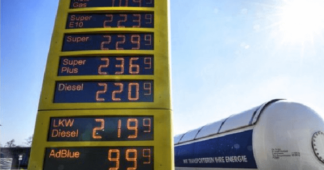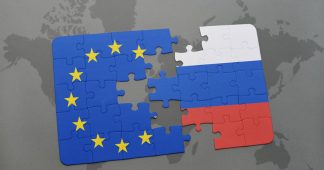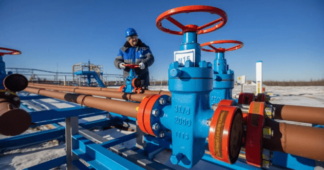The European Union will continue to work on new restrictive measures against Russia, top EU diplomat Josep Borrell said following the December 12 meeting between European foreign ministers. Nevertheless, Brussels decided to increase the financing of the European Peace Facility by €2 bln which is used to pay for military supplies to Ukraine. According to a draft of the ninth sanctions package, they are mostly targeting Russian officials, journalists and artists. Experts polled by Izvestia noted that, while some measures are purely symbolic, the EU’s sanctions enter a new level with Brussels beginning to focus on tracking anti-Russian sanctions violations by third countries.
“The sanctions imagination of European officials is getting exhausted although they successfully coordinated eight packages. Some separate initiatives within the framework of the ninth one are not eliciting much enthusiasm or a united effort anymore. However, it is too early to talk about any split,” Research Fellow at the Faculty of World Economy and International Affairs/Center for Comprehensive European and International Studies at the Higher School of Economics Sergey Shein told the newspaper.
According to him, the very fact of approving a new anti-Russian package is more important for the EU to prove the consistency of its policy. “Bargaining is already becoming typical. Possibly, the Baltic states will soften up after all while Hungary will be encouraged with something in order to arrive at the version that suits everyone,” the expert added. “The EU is already choosing the American style, betting on extraterritorial restrictions. The future of the bloc’s sanctions policy is monitoring the use of the sanctions and punishment for non-compliance. However, it will be possible to provide a more substantial assessment of this only after the first instances of secondary sanctions,” Shein noted.
Brussels is trying to outdo Washington in confiscating Russian assets. So far, the EU cannot resolve differences with its own legislation to expropriate frozen Russian assets and hand them over to Kiev. MEP Gunnar Beck told Izvestia that many countries would like to see this issue resolved by now. He pointed out that currently the EU has €300 bln of Russia’s Central Bank’s assets frozen as well as about €19 in private assets, adding that Brussels is trying to come up with a legislative base to confiscate these assets and use them to restore Ukraine.
Kommersant: Europe’s potential options for Russian gas substitution
Europe is bracing for hard times next winter. According to forecasts by the International Energy Agency, if Russia completely suspends its gas deliveries and China begins to revive its consumption, EU countries will face a dearth of 57 bln cubic meters of gas in 2023, especially considering that there are no anticipated new offers on the LNG market. According to analysts, against this background, competition with Asia for liquefied fuel may only increase in 2023 while any realistic replacements for Russian gas won’t appear until after 2025.
Given the current volumes of Russian gas deliveries, next year Europe will have to find an alternative for at least 50 bln cubic meters, says Sergey Kapitonov, specialist at the Center for Energy Transition and Skoltech’s ESG. That said, there are serious problems in terms of supplies of LNG, he added. Before the end of 2022, the launch of a floating LNG plant in Mozambique for 4.5 bln cubic meters, the completed construction of several production lines in the US and the conclusion of repairs at the Freeport LNG plant are expected. No serious LNG inflow is anticipated in 2022-2023. The scheduled expansion of capacities in Qatar will occur only in 2027, while new American projects will be launched in the mid-2020s. “Under such conditions, next year and in the mid-range prospective, stronger competition between Europe and Asia for LNG should be expected which in turn will put pressure on prices,” the expert thinks.
In his assessment, given these circumstances, unblocking the remaining gas pipelines from Russia or continuing the policy of decreased gas consumption and de-industrialization would be the only possible options of reducing the repercussions of a gas crisis. “In the long-term perspective, the EU has a large number of options to replace Russian gas but that’s on the horizon after 2025, or, rather, closer to 2030,” Kapitonov noted.
According to the International Energy Agency, the volume of new LNG on the market is only 23 bln cubic meters. The agency’s report points out that if China restores its LNG consumption after this year’s drop then Europe won’t get much of these new volumes. “This means that developing Asia-Pacific countries will have to completely forget about any growing demand for LNG for next year at the very least and this is despite the fact that many of them have even decreased consumption this year,” says independent expert Alexander Sobko.
Published by TASS, 13-12-22
We remind our readers that publication of articles on our site does not mean that we agree with what is written. Our policy is to publish anything which we consider of interest, so as to assist our readers in forming their opinions. Sometimes we even publish articles with which we totally disagree, since we believe it is important for our readers to be informed on as wide a spectrum of views as possible.











